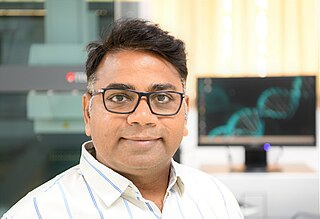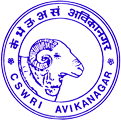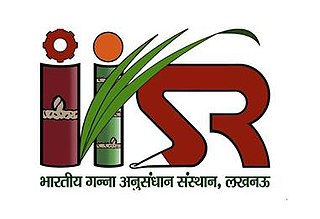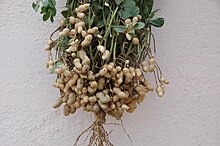
The Central Arid Zone Research Institute (CAZRI) is one of the biggest research institutes of the Indian Council of Agricultural Research (ICAR), an autonomous organization working under the aegis of the Department of Agriculture Research and Education (DARE) of the Ministry of Agriculture and Farmers Welfare of Government of India. CAZRI has the distinction of being one of the first institutes in the world exclusively devoted to arid zone research and development. The institute made a humble beginning in 1952 when Government of India initiated Desert Afforestation Research Station at Jodhpur to carry out research on sand dune stabilization and for establishment of shelter belt plantations to arrest wind erosion. It was reorganized as Desert Afforestation and Soil Conservation Station in 1957 and finally in its present form Central Arid Zone Research Institute in 1959 on recommendation of the UNESCO (United Nations Educational, Scientific and Cultural Organization) expert, Prof. C.S. Christian of the Commonwealth Scientific and Industrial Research Organisation (CSIRO), Australia. In 1966, the institute was brought under the administrative control of Indian Council of Agricultural Research (ICAR), New Delhi.

Junagadh Agricultural University (JAU) is a public state agricultural university at Junagadh in the Indian state of Gujarat. Junagadh Agricultural University offers education in agriculture and allied sciences, i.e., agriculture, agricultural engineering and fisheries. The teaching in the university consists of four faculties: agriculture, agricultural engineering, fisheries and postgraduate studies. The graduate programmes have an intake capacity of 135 in agriculture, 70 in agricultural engineering and 30 in fisheries faculty. The postgraduate level studies are offered in agriculture and agricultural engineering according to the intake capacity of the various faculties.
Vaidhyanathaswamy Santhanam was an Indian cotton scientist who worked for the Food and Agriculture Organization of the United Nations as a long term resident expert for cotton and project leader in Myanmar. He had served as a short term consultant to Vietnam as well. He was chairman of the expert review team of the Southern India Mills Cotton Development and Research Association from November 2009 to March 2010. He was also the author/co-author of over 110 publications, including books and book chapters on cotton.

Mitraniketan Vishwavidyapeetam for Open Learning & Total Development is a Non-Governmental organization located at Vellanad, which is 25 km away from Thiruvananthapuram, the capital of Kerala state in South India. It is a 500-member community, including a staff of 100 men and women. Mitraniketan works in the fields of innovation, training and extension in community development, environment, science, education and appropriate technology. The project was begun with a view to offering education and training in a holistic spirit to primarily socially underprivileged children and youngsters. The organization focuses on alternative education mode for development.
Indian Institute of Rice Research formerly Directorate of Rice Research or IIRR is a rice research institute located in Rajendranagar near Hyderabad, Telangana.

Rajeev Kumar Varshney is an Indian agricultural scientist, specializing in genomics, genetics, molecular breeding and capacity building in developing countries. Varshney is currently serving as Director, Western Australian State Agricultural Biotechnology Center; Director, Centre for Crop & Food Innovation; and International Chair in Agriculture & Food Security with the Food Futures Institute at Murdoch University, Australia since Feb 2022. Before joining Murdoch University, Australia he served International Crops Research Institute for the Semi-Arid Tropics (ICRISAT), a global agriculture R&D institute, for more than 16 years in different scientific and research leadership roles including Research Program Director for three global research programs– Grain Legumes, Genetic Gains and Accelerated Crop Improvement Program. He has the onus of establishing and nurturing the Center of Excellence in Genomics & Systems Biology (CEGSB), a globally recognized center for genomics research at ICRISAT that made impacts on improving agriculture and development of human resources in several countries including India, China, Kenya, Ethiopia, Tanzania, Nigeria, Ghana, Mali, Senegal, Burkina Faso, etc. Varshney holds Adjunct/Honorary/Visiting Professor positions at 10 academic institutions in Australia, China, Ghana, Hong Kong and India, including The University of Western Australia, University of Queensland, West Africa Centre for Crop Improvement, University of Hyderabad, Chaudhary Charan Singh University and Professor Jayashankar Telangana State Agricultural University.
National Innovations in Climate Resilient Agriculture (NICRA) was launched during February 2011 by the Indian Council of Agricultural Research (ICAR) with the funding from the Ministry of Agriculture, Government of India. The mega project has three major objectives of strategic research, technology demonstrations and capacity building. Assessment of the impact of climate change simultaneous with formulation of adaptive strategies is the prime approach under strategic research across all sectors of agriculture, dairying and fisheries.
Regional Agricultural Research Station, Pattambi is a research Station under the Central Zone of Kerala Agricultural University at Pattambi in Palakkad district of Kerala, India.

The ICAR - Central Tuber Crops Research Institute, often abbreviated to ICAR - CTCRI, is a constituent institute under the Indian Council of Agricultural Research (ICAR) is the only research organization in the world dedicated solely to the research on tropical tuber crops. The Institute established in 1963 with its headquarters at Thiruvananthapuram, Kerala has with an area of 48.19 hectares. The headquarters of ICAR - CTCRI is located at Sreekaryam at a distance 12 km away from Thiruvananthapuram International Airport and 10 km from Thiruvananthapuram Central railway station as well as Central Bus Station Thiruvananthapuram. The Institute has a regional centre at Bhubaneswar, Orissa established in 1976 with an area of 20 hectares located 8 km from Bhubaneswar Airport and 7 km from Bhubaneswar railway station to cater the needs of Eastern India.

The Indian Institute of Spices Research (IISR) is an autonomous organization engaged in agricultural research related to spices in India. The institute has its headquarters in Moozhikkal, Silver Hills, Kozhikode, Kerala and is a subsidiary of Indian Council of Agricultural Research (ICAR), New Delhi, under the Ministry of Agriculture, India.

The Indian Institute of Horticultural Research (IIHR) is an autonomous organization acting as a nodal agency for basic, strategic, anticipatory and applied research on various aspects of horticulture such as fruits, vegetable, ornamental, medicinal and aromatic plants and mushrooms in India. The institute has its headquarters in Bengaluru, Karnataka, India and is a subsidiary of Indian Council of Agricultural Research (ICAR), New Delhi, under the Ministry of Agriculture, India. It recently has been ranked 1st for the combined years 2019-20 and 2020-21 by the ICAR.

The ICAR-Central Sheep and Wool Research Institute (ICAR-CSWRI) is an Indian Council of Agricultural Research subsidiary commissioned for research, training and extension activities related to sheep and rabbits. The institute is an autonomous body and is sponsored by the Department of Agricultural Research and Education (DARE), Ministry of Agriculture, Government of India. It is situated in Avikanagar, Malpura, in Rajasthan, India. It works in close liaison with the other ICAR institutes, Central Wool Development Board, Sheep and Wool Marketing Federation, Department of Biotechnology (GOI), Small Entrepreneurs, NGOs, State Animal Husbandry and Khadi gram and Cottage industries.

The Indian Institute of Soil Science is an autonomous institute for higher learning, established under the umbrella of Indian Council of Agricultural Research (ICAR) by the Ministry of Agriculture, Government of India for advanced research in the field of soil sciences.
The Central Soil Salinity Research Institute is an autonomous institute of higher learning, established under the umbrella of Indian Council of Agricultural Research (ICAR) by the Ministry of Agriculture, Government of India for advanced research in the field of soil sciences. The institute is located on Kachawa Road in Karnal, in the state of Haryana, 125 km (78 mi) from the Indian capital of New Delhi.

The Indian Institute of Sugarcane Research is an autonomous institute of higher learning, under the umbrella of Indian Council of Agricultural Research (ICAR) by the Ministry of Agriculture, Government of India for advanced research in sugar cane agriculture. The Institute is located on Raibareli Road, Dilkusha in Lucknow, Uttar Pradesh, India. While, The Central Sugarcane Research Institute established in 1912 is located in Coimbatore, Tamil Nadu, India. It works also under the Indian Council of Agricultural Research.

The Indian Institute of Natural Resins and Gums, formerly known as the Indian Lac Research Institute, is an autonomous institute, established under the umbrella of Indian Council of Agricultural Research (ICAR) by the Ministry of Agriculture, Government of India for advanced research on lac and other natural resins and gums. The Institute is located at Namkum, Ranchi in Jharkhand, India.
The Indian Institute of Millets Research (ICAR-IIMR) located at Rajendranagar is an agricultural research institute engaged in basic and strategic research on sorghum and other millets. IIMR operates under the aegis of Indian Council of Agricultural Research (ICAR). It conducts agricultural research on Millets breeding, improvement, pathology and value addition. IIMR coordinates and facilitates sorghum research at national level through the All India Coordinated Research Projects on Sorghum and provides linkages with various national and international agencies.
A Krishi Vigyan Kendra is an agricultural extension center in India. The centres are associated with a local agricultural university, and serve as links between the Indian Council of Agricultural Research and farmers to apply agricultural research in a practical, localized setting. All KVKs fall under the jurisdiction of one of the 11 Agricultural Technology Application Research Institutes (ATARIs) throughout India.
The Indian Institute of Soybean Research, Indore (ICAR-IISR) is an agricultural research institution located in Indore that focuses on basic and strategic research on soybeans.


























